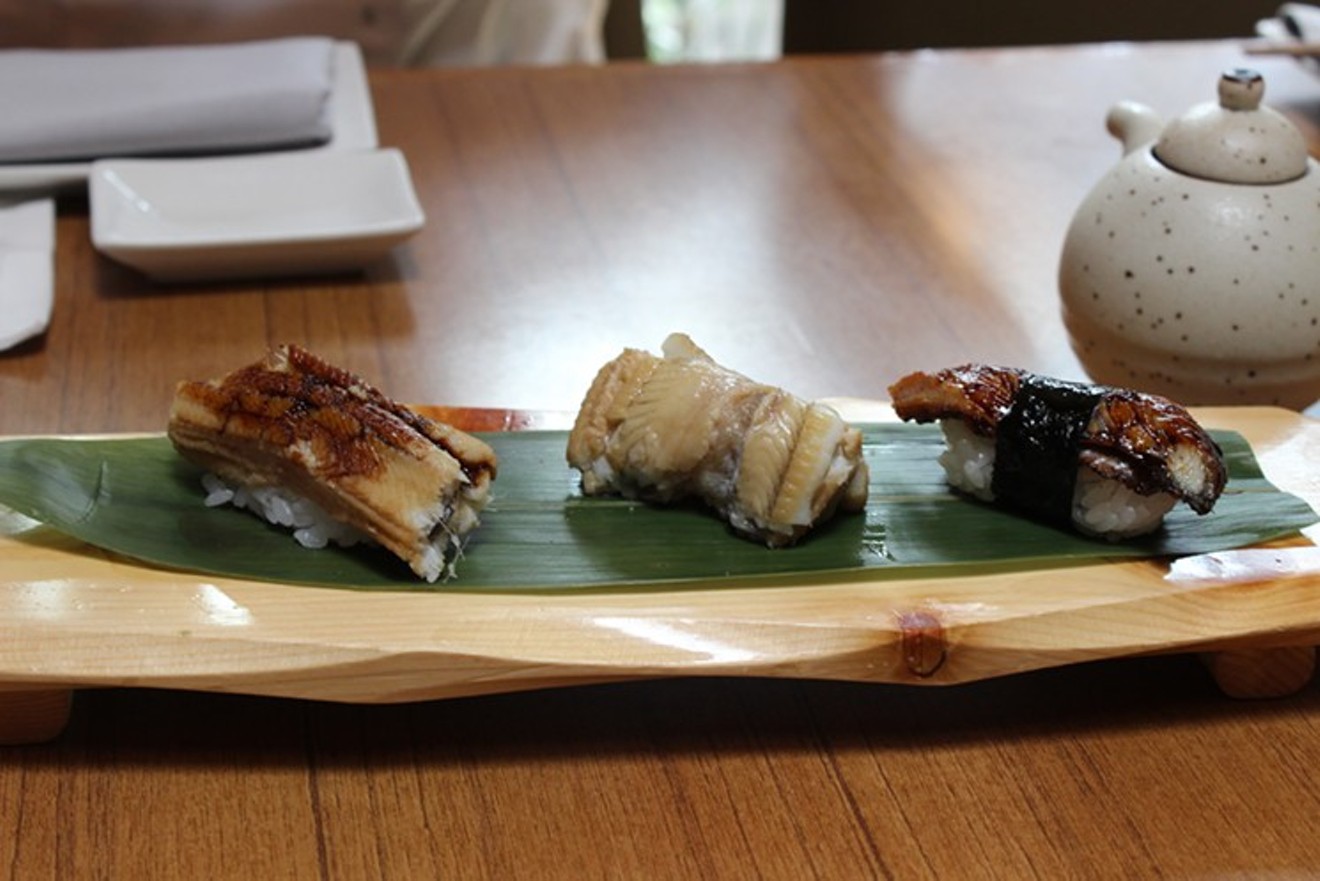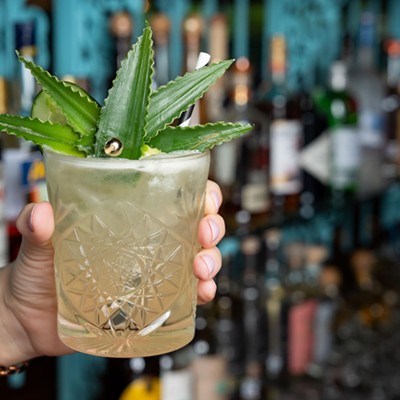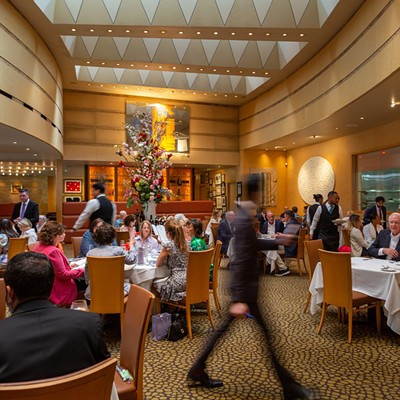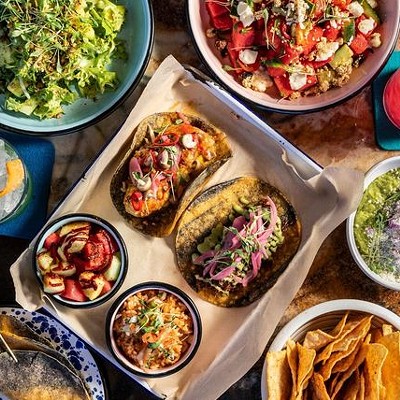Support Us
Houston's independent source of
local news and culture
account
- Welcome,
Insider - Login
- My Account
- My Newsletters
- Contribute
- Contact Us
- Sign out
Kata Robata Chef Manabu Horiuchi Breaking Down an Eel Is Downright Meditative [Video]
Gwendolyn Knapp June 24, 2017 12:00AM

Chef Hori prefers anago (left and middle) to unagi (right) at Kata Robata.
Photo by Gwendolyn Knapp
[
{
"name": "Related Stories / Support Us Combo",
"component": "11591218",
"insertPoint": "4",
"requiredCountToDisplay": "4"
},{
"name": "Air - Billboard - Inline Content",
"component": "11591214",
"insertPoint": "2/3",
"requiredCountToDisplay": "7"
},{
"name": "R1 - Beta - Mobile Only",
"component": "12287027",
"insertPoint": "8",
"requiredCountToDisplay": "8"
},{
"name": "Air - MediumRectangle - Inline Content - Mobile Display Size 2",
"component": "11591215",
"insertPoint": "12",
"requiredCountToDisplay": "12"
},{
"name": "Air - MediumRectangle - Inline Content - Mobile Display Size 2",
"component": "11591215",
"insertPoint": "4th",
"startingPoint": "16",
"requiredCountToDisplay": "12"
}
,{
"name": "RevContent - In Article",
"component": "12527128",
"insertPoint": "3/5",
"requiredCountToDisplay": "5"
}
]
It's that special time again. Time to round up top posts from our recent past, and since we love y'all so much, we thought we'd throw in this super zen-like video of Chef Hori breaking down an eel at Kata Robata.
For the past month, the Press has delved into the seedy world of seafood via the Before You Eat That series, which broaches all the annoying food subjects that make you highly uncomfortable.It's basically for schadenfreude-obsessed killjoys. Catch up on all the craziness below and have a great weekend.
Before You Eat That Eel: Unagi's Days Are Pretty Much Numbered
There are poachers in Maine who've been stealing baby eels, known as elvers, the going rate for which happens to sit at around $1,500 per eel. In Japan, where freshwater eel, or unagi, is basically a way of life, the population has been on a severe decline, to the point of almost being wiped out, and things are getting pretty dire. The country added its freshwater Anguilla japonica as an endangered species in 2013 after seeing a 90 percent decline over three generations. It's said the Japanese consume 70 percent of the world's freshwater eel. It's just that the unagi situation is also now bleeding over into the States.
Before You Eat That Oyster: Do You Know About Its Huge Gonad?
It's June, not exactly a month most people associate with sitting around downing a dozen raw oysters, but these are modern times, and modern oysterwomen and men have access to technology that allows for safe summertime fishing and transportation of bivalves. Refrigeration right on the boat allows for oysters to be brought safely to market and restaurants, and a close eye is kept on the health of the waters they're raised in, so that old R rule — eat them only in months that contain an "r" in their spelling — is sort of obsolete.
Before You Eat That Red Snapper: The Fish Is Basically Plagued By Endless Fraud
Red snapper is one hell of a divisive fish. Among Texas anglers, big time regulations make it a contentious subject between recreational and commercial factions. Among restaurants in America, the Congressional Research Service reported in 2015 that 77 percent of red snapper being served in the country was not actually red snapper at all with Pacific Rockfish and tilapia often used as menu counterfeits, Forbes reported last fall. In January of this year, UCLA researchers also found that among 26 Los Angeles sushi restaurants, fish labeled as tuna was always tuna, but all orders of red snapper turned out to be other fish, with DNA testing to back up those claims.
Before You Eat That Octopus: Is It Too Smart To Eat?
Octopus may be a great low-fat option for seafood lovers, but for some people, it's too intelligent, and far too superior an animal to eat.
"Like dolphins," a colleague recently said when I shared with him how, several months ago over a candlelit dinner at New Orleans's famed bohemian wine yard Bacchanal, I'd been chastised by a group of young novelists for ordering octopus, the chargrilled dish arriving to a series of hushed tsk-tsks the way only a group of young novelists dressed as they were, in zombie and cowboy Halloween attire, can effectively provide while pawing at beef carpaccio, kale salads and short ribs.
KEEP THE HOUSTON PRESS FREE...
Since we started the Houston Press, it has been defined as the free, independent voice of Houston, and we'd like to keep it that way. With local media under siege, it's more important than ever for us to rally support behind funding our local journalism. You can help by participating in our "I Support" program, allowing us to keep offering readers access to our incisive coverage of local news, food and culture with no paywalls.
Trending Food & Drink
- Upcoming Houston Food Events: JŪN Hosts a Pastry Pop-Up and Wine & Dine
- Feeding Houston: Brighter Bites, Houston Food Bank and Cougar Cupboard
- Houston Restaurants and Bars Celebrating 4/20 with Cannabis Cocktails, Munchies and More
-
Sponsored Content From: [%sponsoredBy%]
[%title%]

Don't Miss Out
SIGN UP for the latest
food & drink
news, free stuff and more!
Become a member to support the independent voice of Houston
and help keep the future of the Houston Press FREE
Use of this website constitutes acceptance of our
terms of use,
our cookies policy, and our
privacy policy
The Houston Press may earn a portion of sales from products & services purchased through links on our site from our
affiliate partners.
©2024
Houston Press, LP. All rights reserved.









